5 tips to help your kids learn at home
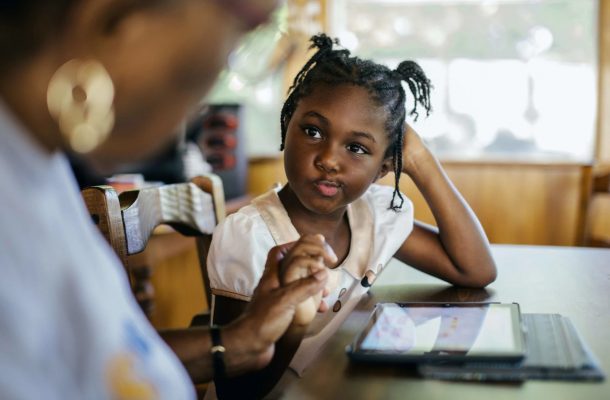
The Victorian Premier, Daniel Andrews, announced that from this week the State’s schools are closed.
Premier Andrews went onto say any decision to return students after the holidays will only be made on the advice of the Victoria’s chief health officer.

Victorian Premier Daniel Andrews announced the closure of non-essential services in a bid to curb the spread of COVID-19.
Schools in some other Australian states initially remained open, all following the health advice to implement social-distancing measures like cancelling assemblies and sporting events, and most say it’s up to the parents whether they send their children or not. However Queensland and South Australia have now also announced plans to move to online-learning, while keeping schools open for children whose parents must still go to work.
In Europe, around 30 countries have announced national school closures – which has the potential to affect 400 million children.
Even before Premier Andrew’s announcement, there were already some parents choosing to keep their kids at home – wary of the risks posed by the pandemic.
Either way, students’ learning is likely to be disrupted.
So, it’s worth thinking through how to support your child’s education, as well as how they might be affected emotionally.
Here are five tips for parents and carers who want to help keep their kids learning if they’re at home.
1. Focus on what you can do
Significant events that are largely outside our control, like the spread of COVID-19 or a school closure, can create a lot of anxiety in both children and adults.
As a result, alarmist behaviour can emerge and the news and social media is filled with plenty of examples.
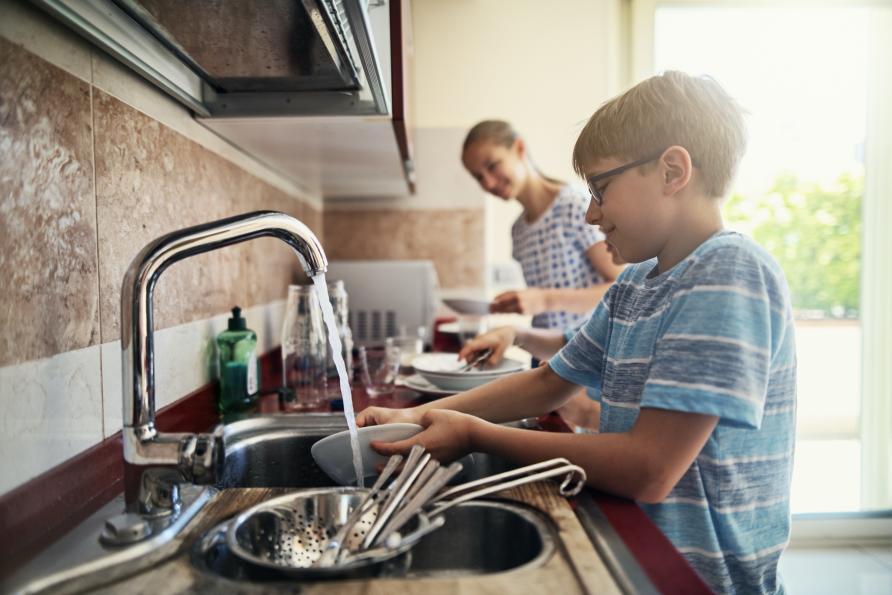
Give kids responsibility for tasks at home to help make them feel more in control.
Most likely, children will have had some exposure to panic buying either directly (by observing empty supermarket shelves) or indirectly (seeing videos of people fighting over goods on the news or social media). This can be hard to explain to children.
Under strained and stressful conditions, fear can result in panic, and when panicked we act impulsively. Explain to children the importance of approaching the situation calmly and share with them the steps you’ve taken at home to be prepared.
When there is this kind of uncertainty and confusion, it’s important to focus on the things we can do as this can help to allay some of those larger anxieties.
While maintaining basic hygiene and following the advice of the health authorities is a good way to start, there are also practical things you can do if you are at home with the kids.
Give children responsibility for tasks at home like helping care for a sibling, looking after a pet, keeping their room tidy or assisting with meals which helps to focus attention on what can be done.
2. Establish a daily routine
In the event of school closure, follow the advice of the experts and protocols put in place by the school.
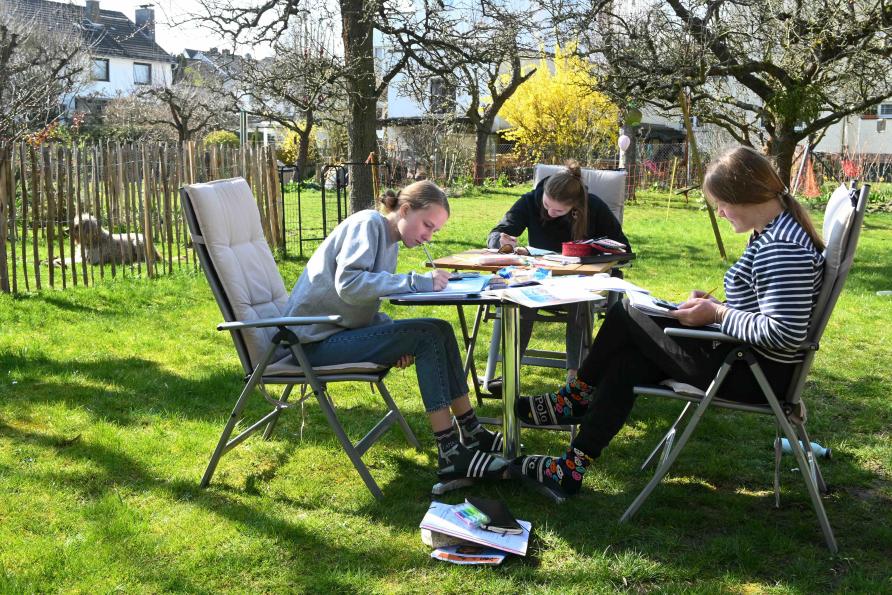
Older children are more likely to adhere to a timetabled school day.
Schools moving to online delivery have an array of educational platforms available to support student learning and connection between students and teachers.
Pay attention to information shared by the school on how online learning will be facilitated and download recommended apps and programs to support your child’s learning.
Support your child to maintain a routine while at home. This will look different depending on the age of your child – for example, older children are more likely to adhere to a timetabled school day.
Irrespective of age, keeping your child to a routine schedule will create predictability and reduce anxiety.
Ensure that the daily schedule includes a balance of academic, creative, physical and social activities with clear expectations for wake-up and bedtimes.
Create your own or use one of the many online examples.
Having a routine for screen time will help too; make clear your expectations around screen time for education and for leisure.
3. Stay connected
While social distancing is vital, staying in touch with friends is also important for all children.
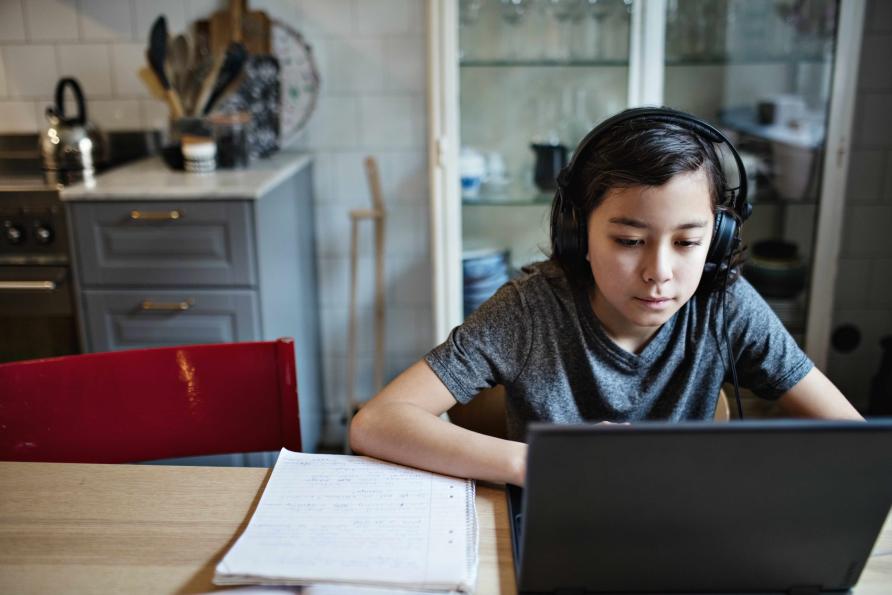
Give kids a chance to interact with peers during their breaks through online connections.
Providing opportunities to interact socially with peers will help children maintain connections and boost their mood.
So if your child is at home, give them a chance to connect with peers during their breaks, like they would during recess and lunch at school. There are a host of technology options available to support virtual connections – whether it’s FaceTime with grandparents, or having a Netflix ‘watch’ party with friends.
You can use the same technology to stay in touch with extended family, especially when children are used to visiting their grandparents or cousins regularly.
4. Stay active
Our kids spend a lot of time moving around at school, so it’s important to ensure that they are still engaging in activities they enjoy while they’re at home.
If it’s practical, spend some time outside riding, jogging or walking. It’s worth also looking into some of the many fitness apps available that can ‘organise’ your activity for you.
Staying active as a family can also have positive impacts on mood for everyone, not just kids, so it’s also important adults get involved.
Take the opportunity to do something together, whether it be playing board games, or working on a project in the house or garden. Capitalise on the chance for some family bonding whilst respecting family members’ needs for space.
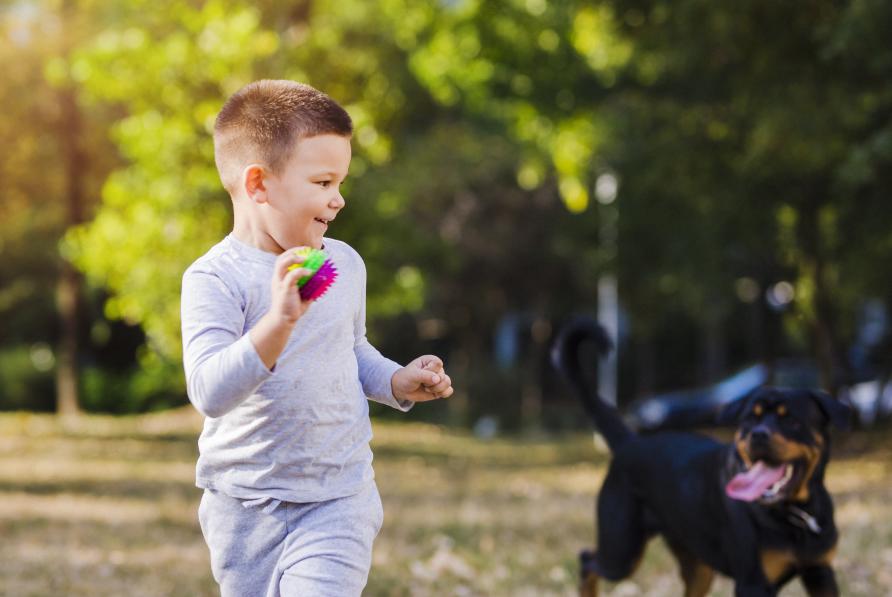
It’s important to ensure that kids at home are still engaging in activities they enjoy.
5. Handling anxiety
Parents and carers must make particularly sure to listen to children and hear their concerns about what is happening around them.
It’s important to provide them with age-appropriate information that is based on the facts. For example, for younger children keep answers simple, “sometimes people wear masks when they are sick so others don’t catch it”.
Ask them what they already know so you can clarify any misconceptions they might have.
In terms of a school closure, your child might have questions you cannot answer yet like “when is this going to end?” and “when will I be able to go back to school?”.
It’s important to avoid making assurances you can’t keep but validate your child’s emotion around the uncertainty and assure them that you will share information as you have it.
Remember that children will take a lead from adults about how to behave in difficult situations, maintaining a sense of calm will help children cope.
It is also equally important to look after yourself as a parent or carer; keep an eye on your sleeping, eat well, spend time doing activities you enjoy and look into relaxation and mindfulness techniques to help maintain your calm (something you will need with potentially bored kids at home).
Getting this balance right will help your kids continue with at least a part of their education while they’re at home – and who knows, you might learn something new too.
This article was published by Pursuit.
Dr Chelsea Hyde is an Educational Psychologist in the Melbourne Graduate School of Education at the University of Melbourne.














